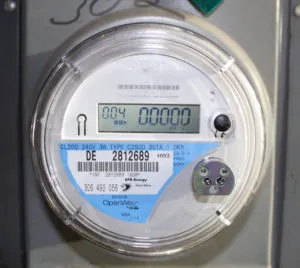Smart Energy Summit Reveals Potential For Internet-Based Devices and Services
It may be that the utility meter reader’s days are numbered, and you’ll never again see him or her walking up to your home or business to see how much electricity you’ve used for the month.
That’s because electric companies across the country are slowly making the switch to smart meters, devices which hold money-saving potential. That’s because smart meters are designed to communicate with smart appliances, like air conditioners, water heaters and dishwashers, and run them when power on the grid is cheap. And, of course, they can communicate directly with the utility, relaying electricity usage and other information–hence, time to say goodbye to the meter reader.
Well, at least it sounds good in theory.
A recent article in the New York Times points out that widespread smart meter usage, as described above, is still “many years away.” Consumers, they say, are not quite ready yet to embrace a fundamental component of the concept, which is “dynamic pricing.” This means electricity will cost more during hot summer afternoons; less during cool nights. It would encourage owners of smart appliances to program them to run at times when electricity is cheap.
The problem is, it’s going to be a while before a wide variety of smart appliances are available in the market. Until then, consumers will need to “manually manage” their electricity consumption by monitoring the price data from their smart meters.
“The smart meter giving people real-time access to price information is not going to make them get up in the middle of the night and turn their dishwasher on,” John P. Hughes, VP for technical affairs at the Electricity Consumers Resource Council, said in an interview with the Times.
Across the U.S., about a million residential customers are taking advantage of smart meter programs using dynamic pricing, according to the Times. That’s only about 1 percent of electricity customers in the country.
Still, some customers are reporting energy-saving success with their smart meter systems. The Times article cites Illinois resident Joe Godinsky’s experience–he analyzed the dynamic pricing rates and saved money by choosing electric heating over gas late at night.
Some retail electricity providers in our region offer smart meters and participate in the Smart Meter Texas program. We’re curious if you’ve using the devices and if you’ve been able to get maximum benefit from them. Drop us a line by email or let us know on our Facebook page!










